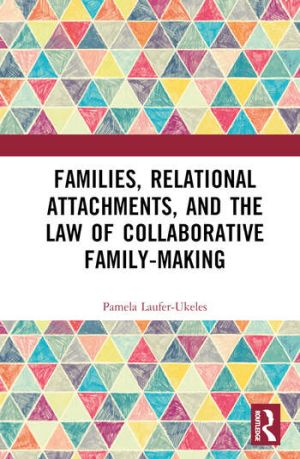
Pointing to a range of legal dilemmas and ethical concerns, this book sets forth a crisis at the heart of modern family law’s treatment of “collaborative family-making”: gamete contributions, surrogate motherhood, adoption, functional parenthood, foster care, and kin caregiving. Born of inequality and anchored by exclusivity and secrecy, the dominant acquisitional legal frame is starkly disconnected from empirical accounts of the lived experience of collaborations, which demonstrate complex relational attachments. At the intersection of law and sociology, the work challenges the law to account for relational realities that fail to conform to neat legal categories, asking: How should the law reflect the complex interconnections between families and family-making collaborators? Should collaborators be treated as legal strangers? Who is impacted by the lack of legal status possessed by family-making collaborators? Who benefits and who loses?
This is a work of optimism that seeks to facilitate family-making collaborations in more ethical ways. It introduces a bold new legal framework of interconnection and guides the reader in implementing practical legal and contractual changes that promote human dignity, uphold children’s right to identity and support ongoing relational attachments with adults who are fundamental to children’s lives.
The volume provides deep and accessible insight into families and family law for legal practitioners, academics, students and laypersons interested in family-making collaboration.